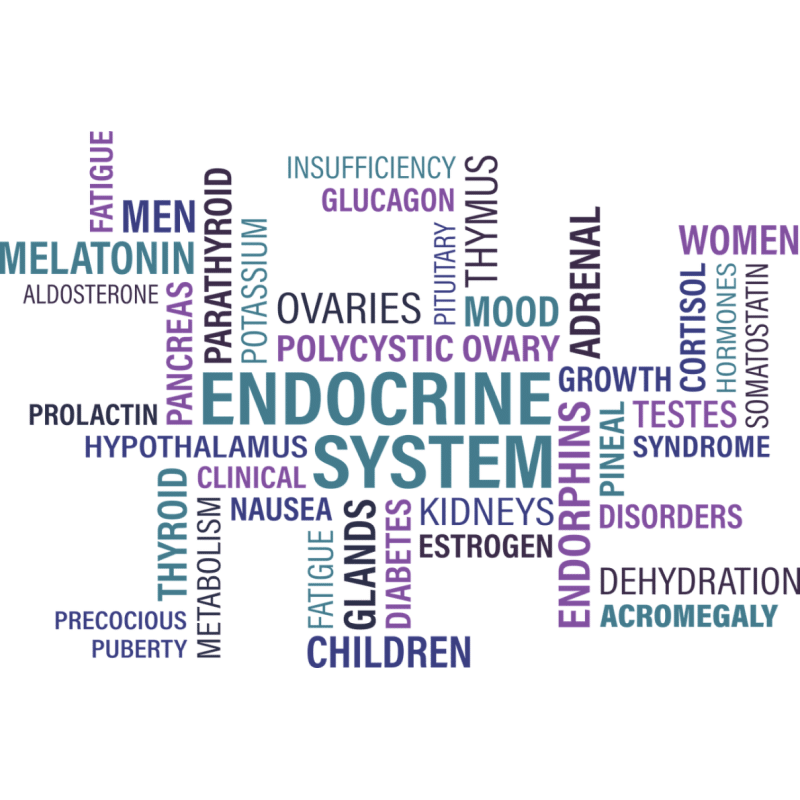
At a certain age, whenever you bring up different symptoms like fatigue, weight gain, or even insomnia, it seems like many people will bring up your thyroid.
While we don’t recommend self-diagnosis, you may be on to something. The truth is that our thyroid has a big job; it may be physically small, but its impact on our overall wellbeing is vast.
What Your Thyroid Does
It’s probably best to start by going over what the thyroid is exactly. This is a butterfly-shaped gland you’ll find at the base of the neck, and it’s tasked with the job of regulating certain hormones.
The thyroid gland produces the hormones triiodothyronine (T3) and thyroxine (T4), both of which have an enormous impact on your health, affecting all aspects of your metabolism. These hormones also influence the control of vital functions.
For example, your thyroid produces hormones which regulate or contribute to:
- Regulating metabolic rate
- Muscle control
- Regulation of heart and digestive function
- Brain development
- Mood
- Bone maintenance
We’re sure we can all agree on the importance of each of the above functions, therefore, shining a light on how important our thyroid health really is. Issues with our thyroid can arise in people of any age, but most commonly affect women who are in their 50s or older.
What Can Go Wrong With Your Thyroid
There are a variety of issues that may arise with your thyroid gland, some occurring naturally at birth or developing later on life due to external factors or hormonal imbalance.
Each condition comes with a long list of symptoms which, when left unchecked and managed, can negatively impact your life.
The two common conditions associated with the thyroid gland include hyperthyroidism and hypothyroidism. Let’s get into the specifics.
- Hyperthyroidism: This condition occurs when the thyroid gland is overactive and produces too much hormone. Common symptoms associated with this condition include increased heart rate, sweating, shaking, weight loss, irritability, and changes in menstrual cycle (typically shorter, lighter periods).
- Hypothyroidism: On the other hand, when the thyroid gland doesn’t produce enough hormones, you may be suffering from hypothyroidism. This condition is much more common and may cause symptoms like weight gain, constipation, dry skin or hair loss, and fatigue.
Both conditions come with a long list of symptoms and will cause a dangerous hormonal imbalance. It’s not uncommon for patients to suffer from all symptoms rather than just a few.
Both conditions may also stem from autoimmune diseases, certain medications, an iron deficiency, viral infections, surgical removal of the thyroid gland, or even radiation.
Unfortunately, it’s also possible that these conditions occur naturally without any cause.
What You Can Do About Your Thyroid Disorder
Generally, both hyperthyroidism and hypothyroidism are easily diagnosed through a simple blood test. This blood test measures the amount of thyroid hormones in your blood.
While easily diagnosed, many patients dealing with these symptoms believe they are just side effects of aging and never seek treatment.
If you are experiencing any of the symptoms above, it’s worth exploring the possibility of thyroid disorder. Once tests come back and your thyroid condition is diagnosed, there are a variety of treatment options for either condition.
Some options include hormone replacement therapy, surgery, and pharmaceuticals. However easy it is to diagnose and treat, thyroid conditions are never a one-size-fits-all disorder and treatment, which is why you’ll want an experienced professional to guide you through an appropriate and customized wellness plan.
EVEXIAS Denver Can Help!
Find relief and confirm your diagnosis when you meet with our team at EVEXIAS Denver. Schedule your comprehensive consultation today.
We’ll discuss your symptoms, health history, and pinpoint the root cause of your health concerns. Once we have the big picture of your health, we’ll decide what diagnostic tests or labs will be necessary and use our findings to develop the best treatment plan that is in line with your health goals and lifestyle.
Have questions? Don’t hesitate to call! We’d be happy to give you more information about these thyroid conditions and the treatment paths we are familiar with. Get in touch by ringing our office at (719) 625-8045 or by filling out our online contact form.
